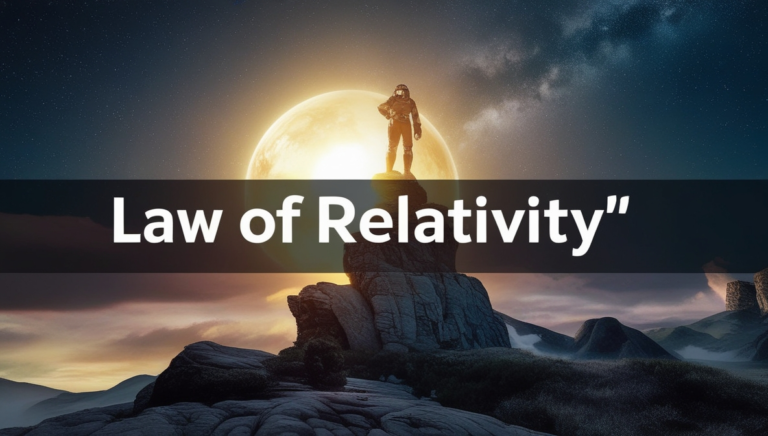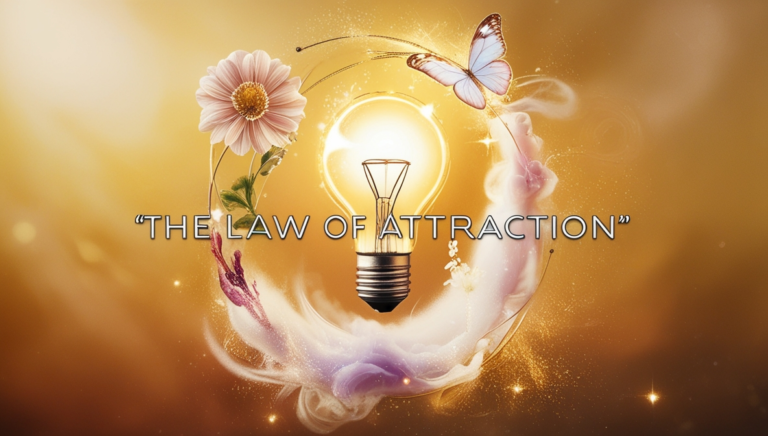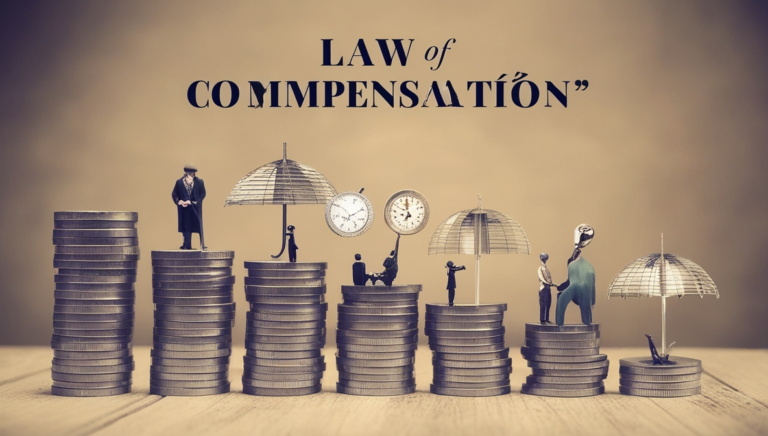
The Law of Karma is one of the most well-known spiritual laws, deeply rooted in both Eastern philosophies and modern spiritual teachings. Karma is often described as the principle of cause and effect—that every action, whether positive or negative, will eventually return to you. It reflects the idea that what you put into the world, you will receive in kind. This powerful law governs the energy of your actions, thoughts, and intentions, shaping your experiences in this life and, according to some beliefs, in future lives as well.
Understanding the Law of Karma is essential for leading a life of greater awareness, responsibility, and spiritual growth. By learning how karma works, you can begin to align your actions with positive outcomes, creating a better reality for yourself and those around you. Discover more about Spiritual Laws.
What Is the Law of Karma?
At its core, the Law of Karma states that every action has a reaction. This reaction might not occur immediately, but eventually, the consequences of your actions, words, or even thoughts will return to you. Karma is often thought of in terms of reward and punishment, but it’s more accurate to view it as a neutral universal force that balances out energies and actions.
There are three main types of karma:
- Sanchita Karma: The accumulated karma from past lives or experiences that have not yet manifested.
- Prarabdha Karma: The portion of karma that is currently being experienced in this life.
- Kriyamana Karma: The karma being created in the present moment, which will manifest in the future.
These karmic categories work together to influence our lives, making the Law of Karma a dynamic and ever-present force that impacts every decision and action.
How Does Karma Work?
The Law of Karma is based on the idea that our actions, both good and bad, create energetic imprints in the universe. These imprints eventually return to us in the form of life experiences, circumstances, and relationships. Here’s a breakdown of how karma operates:
1. Actions
Every action you take—whether it’s something small like helping a friend or something larger like making a career decision—creates an energetic ripple in the universe. If the action is rooted in kindness, compassion, or love, it sends out positive energy that will eventually return to you in the form of good experiences. Conversely, actions rooted in hatred, jealousy, or harm will generate negative energy that can return to you as challenges or difficulties.
2. Thoughts and Intentions
Karma isn’t just about physical actions—it also applies to your thoughts and intentions. If you harbor negative thoughts, even without acting on them, they still contribute to your karmic energy. On the other hand, positive thinking and benevolent intentions send out high vibrations that attract good karma. This is why it’s crucial to practice mindfulness and awareness of your inner world, not just your external actions.
3. Consequences Over Time
Karma doesn’t always deliver immediate consequences. Some actions might return to you in the near future, while others may take years or even lifetimes to manifest. This can make it difficult to link specific events in your life to the actions that caused them. However, the Law of Karma assures that everything balances out in the end, even if the timeline is not always clear.
How to Create Positive Karma
Understanding the Law of Karma gives you the opportunity to actively shape your future by creating positive karma. Here are some practical ways to align your actions, thoughts, and intentions with this spiritual law to ensure that you are cultivating positive energy:
1. Practice Compassion
One of the most powerful ways to generate positive karma is through compassion. When you show empathy and kindness toward others, you send out positive energy that will return to you in the form of good fortune, strong relationships, and peace of mind. Compassion is especially important in challenging situations, as how you treat others during difficult times can significantly impact your karmic balance.
2. Do Good Without Expectation
Selflessness is key to accumulating positive karma. When you perform good deeds with the expectation of a reward, the energy behind your actions becomes tainted by selfishness. True selfless service comes from a place of giving without expecting anything in return. Whether it’s helping a stranger, volunteering, or simply offering a kind word, act from a place of love and generosity.
3. Forgive and Release Resentment
Forgiveness is a powerful tool for balancing karma. Holding onto grudges or resentment creates negative energy that weighs you down and impacts your vibration. By forgiving others, you release this negative energy and make room for healing and positive transformation. Keep in mind that forgiveness doesn’t excuse harmful behavior—it’s about freeing yourself from the emotional burden.
4. Be Mindful of Your Intentions
Intentions play a significant role in karma. Even if your actions seem positive on the surface, if they are driven by selfish or harmful intentions, they can generate negative karma. Always check in with yourself and ask why you’re doing something. If your motivation is rooted in love, kindness, and positivity, you’ll create good karma.
5. Accept Responsibility
The Law of Karma is a reminder that we are responsible for the energy we put into the world. Instead of blaming others or external circumstances for difficulties, take responsibility for your actions and their consequences. This accountability will help you make better choices in the future and create more positive outcomes.
The Law of Karma and Reincarnation
In many spiritual traditions, particularly in Hinduism and Buddhism, the Law of Karma extends beyond a single lifetime. Karma is believed to transcend death, with actions in one life influencing the circumstances of the next. This is where the concept of reincarnation comes into play. According to these beliefs, your current life experiences are shaped not only by your present actions but also by the accumulated karma from past lives.
While not everyone subscribes to the idea of reincarnation, the underlying principle remains the same: your actions create energetic consequences that may manifest at different points in your spiritual journey, whether in this life or beyond.
Misconceptions About the Law of Karma
Despite its popularity, the Law of Karma is often misunderstood. Let’s clarify a few common misconceptions:
1. Karma Is Not Immediate Retribution
Many people believe that karma is a form of instant retribution or that bad things happen immediately to those who do wrong. While karma does operate on the principle of cause and effect, it doesn’t always work on a short timeline. Some karmic debts may take years or lifetimes to balance.
2. Karma Is Not About Punishment
Another misconception is that karma is solely about punishment. In reality, karma is neutral and not tied to moral judgments of good or bad. It is simply the natural balancing of energies. Positive and negative experiences arise not as a form of punishment or reward, but as consequences of the energy you’ve created.
3. You Can Change Your Karma
Some people think that karma is fixed and unchangeable. However, you have the power to transform your karmic path through conscious decisions, spiritual growth, and self-awareness. By making positive changes in your actions, thoughts, and intentions, you can create new karma and shape a better future.
How to Break Negative Karmic Cycles
If you find yourself stuck in recurring negative patterns, it may be the result of negative karma from past actions. The good news is that you can break these cycles by becoming aware of them and consciously choosing to act differently. Here’s how to start shifting negative karma:
1. Reflect and Take Responsibility
The first step is to reflect on your life and identify any patterns of negative karma. Are there certain areas where you always seem to struggle, such as relationships or career? Once you recognize these patterns, take responsibility for your role in creating them.
2. Practice Self-Forgiveness
If you’re holding onto guilt or shame for past actions, this negative energy can continue to manifest in your life. Self-forgiveness is essential for breaking the cycle of negative karma. By forgiving yourself, you release the energy of the past and open yourself up to healing and growth.
3. Perform Positive Actions
You can counterbalance negative karma by consciously performing positive actions. Acts of kindness, generosity, and compassion can help tip the scales and bring more positive energy into your life. The more you act from a place of love, the more good karma you create.
4. Meditation and Mindfulness
Meditation and mindfulness practices can help you become more aware of your thoughts and actions, allowing you to make choices that align with higher vibrations. When you are more present and conscious of your intentions, you can avoid creating negative karma.
How the Law of Karma Affects Your Daily Life
The Law of Karma isn’t just a spiritual concept—it plays out in our everyday lives. From how we treat others to how we respond to challenges, karma influences our experiences. Here’s how you can apply the Law of Karma in daily life:
- Relationships: Treat people with kindness and respect. The energy you give in relationships will come back to you, whether it’s through stronger connections or challenges that teach valuable lessons.
- Career: Your actions at work, whether in collaboration, ethics, or productivity, create karma. Fostering positive energy in your professional life leads to success and opportunities, while negative behavior can create setbacks.
- Personal Growth: Being mindful of your thoughts, actions, and intentions helps you grow spiritually and create the life you desire.
Conclusion: Embrace the Power of Karma
The Law of Karma teaches us that every choice we make has a ripple effect, influencing not only our present but also our future. By understanding and applying this powerful spiritual law, we can consciously shape our lives for the better. Focus on creating positive energy, act with compassion, and take responsibility for your actions—your future self will thank you.






